Cape Town: The culinary capital of South Africa
Cape Town is often referred to as the culinary capital of South Africa, and with good reason. The food scene here blends African, European, and Asian flavours in exciting and unexpected ways, with the end product being something entirely of its own. Surrounded by the winelands, the sea, and some specialised small-scale farms, the city also has direct access to some of the freshest ingredients in the country. Add to this a thriving community of chefs, artisans, and entrepreneurs who are all about pushing boundaries. The result is that whether you’re looking for the best budget bites or seeking out sophisticated fine dining, in Cape Town you’ll find something to tempt everyone’s tastebuds.
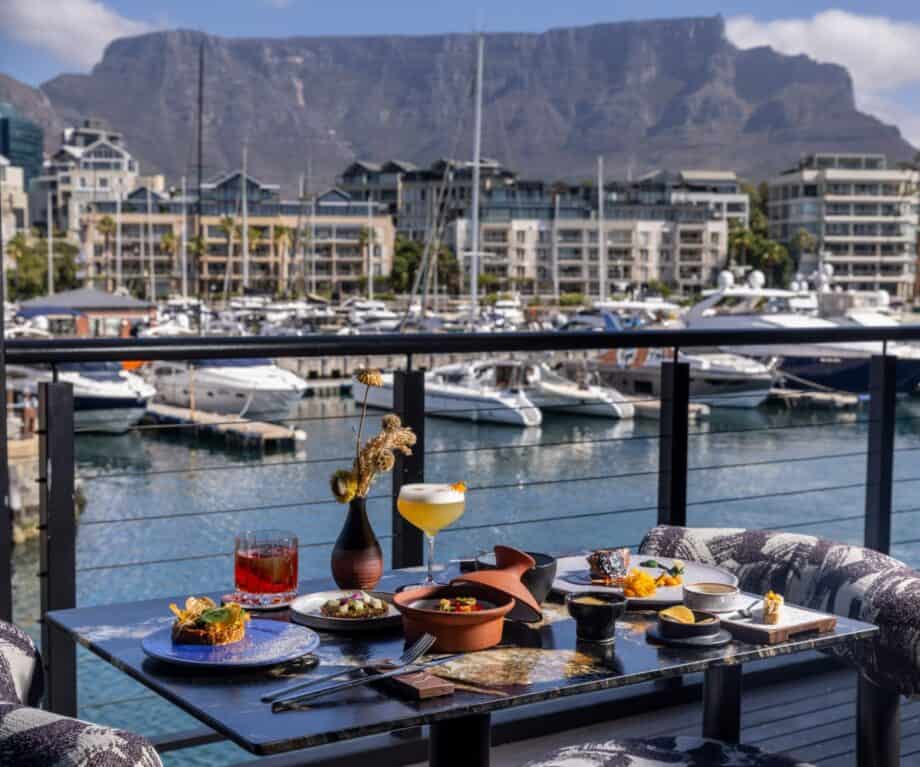
Food markets
Cape Town’s food markets are an explosion of flavour, culture and community. From the Old Biscuit Mill to Maker’s Landing at the V&A Waterfront, the Bay Harbour Market in Hout Bay, and the Oranjezicht City Farm Market, these bustling and vibrant places bring together gourmet street food, fresh local produce, and artisanal treats.
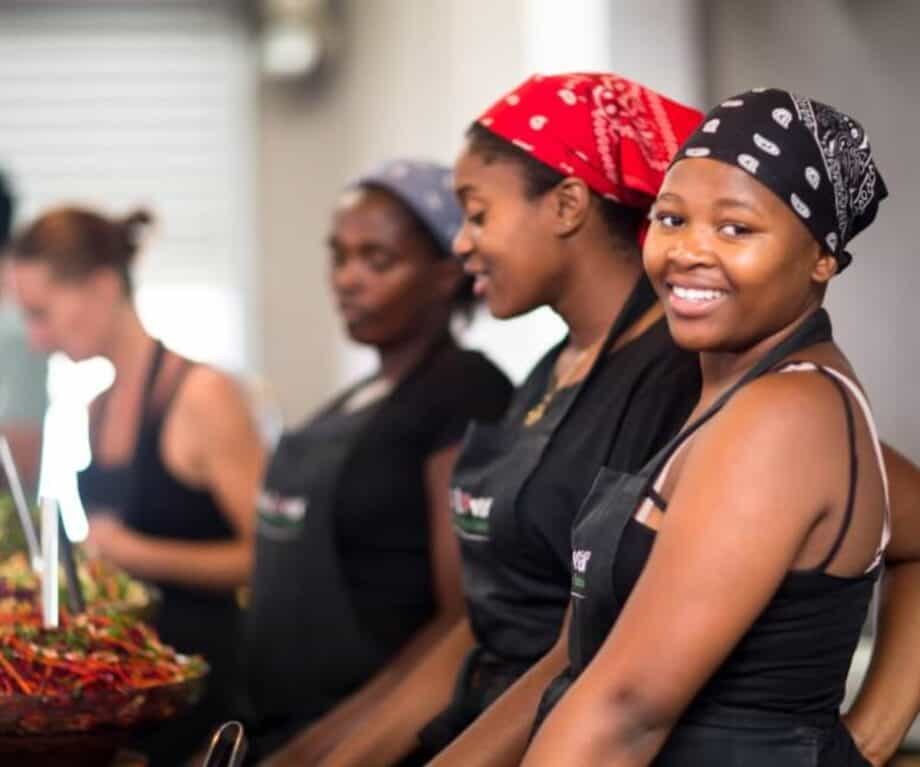
More than just a place to eat, these markets are vibrant social spots, where visitors can shop and sample a variety of cuisines, often while enjoying live music.
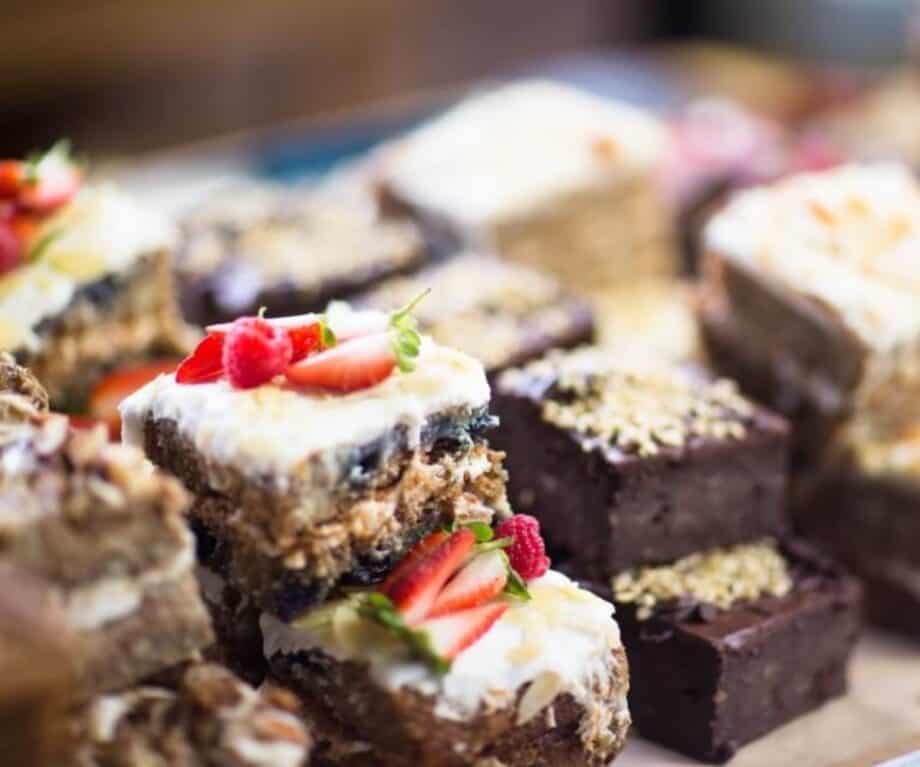
Wine tasting and food
Cape Town is surrounded by world-class wine regions, making it the ideal destination for wine tastings and gourmet food. A short drive will bring you to wine farms like Durbanville’s Klein Roosboom, known for its multi-award-winning wines, unique cave tastings and fabulous farm-to-table dining, or the renowned De Grendel Wine Estate, which sits elevated on the fynbos-covered slopes of the Tygerberg, looking out over a postcard-perfect panorama of Table Mountain and the city.
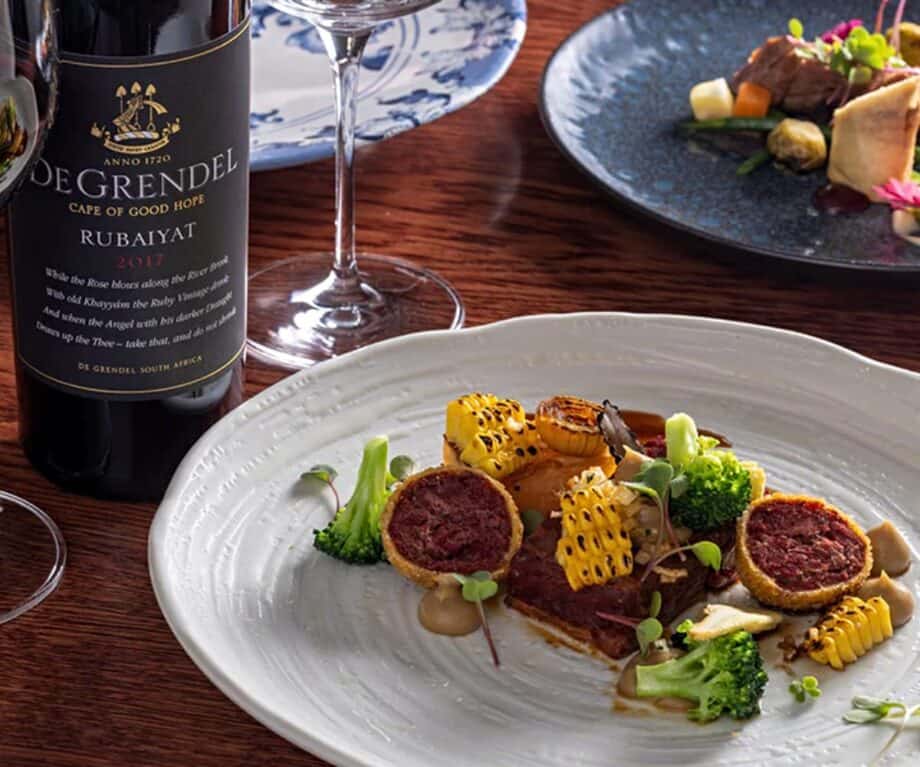
Alternatively, try heading out to entire wine regions like Franshoek, Paarl and Stellenbosch, where you can enjoy a relaxed picnic in the vineyards, or a sophisticated food and wine experience in one of the many spectacular wine farm restaurants. Cape Town’s winelands are a feast for both the eyes and the appetite.
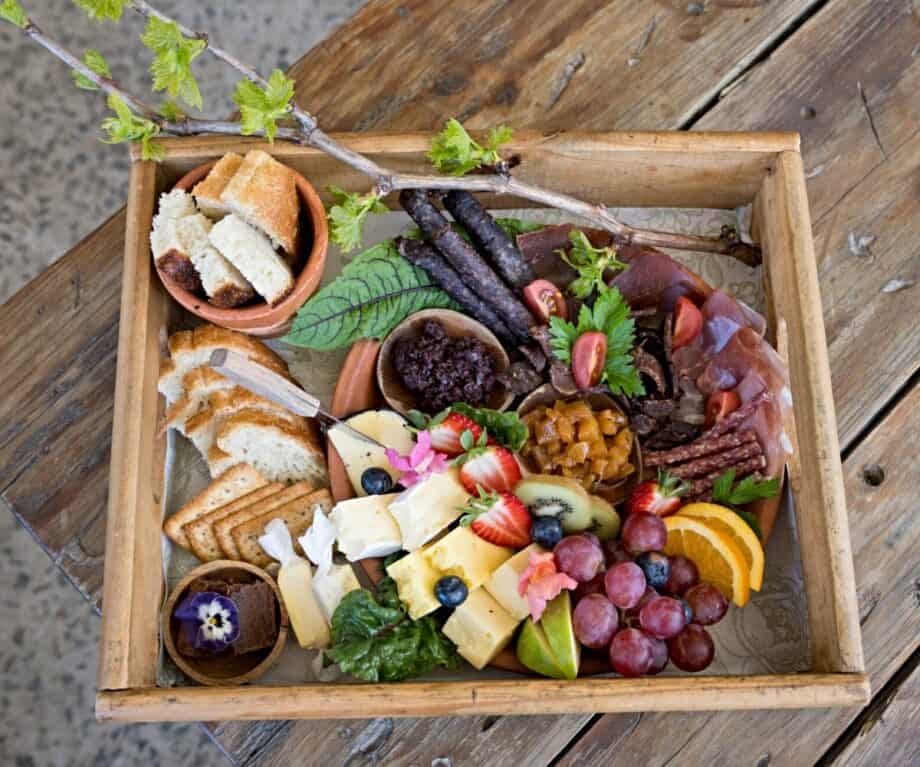
Food Jams
For a rather unique culinary experience in Cape Town, Food Jams offers an immersive experience that blends cooking, music, and social connection. Founded in 2010 by Jade de Waal, a jazz musician and MasterChef SA finalist, Food Jams transforms traditional cooking classes into lively, collaborative events where participants cook together to the soundtrack of curated playlists.
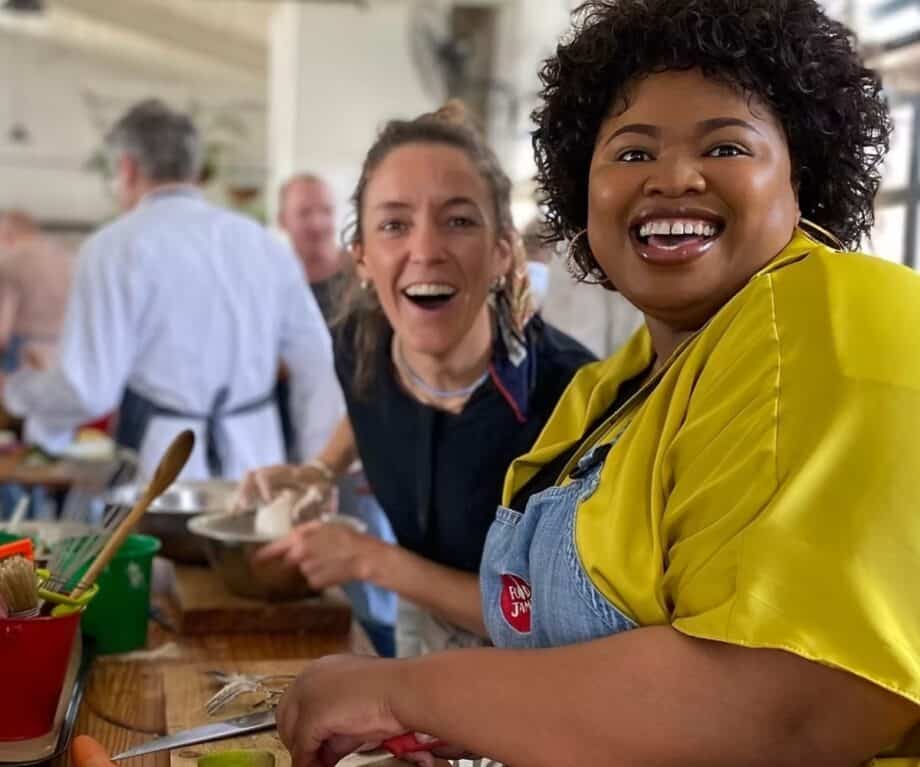
Participants are grouped into teams and guided through the preparation of a themed menu, with options ranging from Mediterranean to Asian cuisines. The experience culminates in a communal feast at a long table, where everyone enjoys the dishes they’ve created together. With venues in Cape Town’s Salt River and Woodstock neighbourhoods, Food Jams emphasises creativity, collaboration, and the joy of cooking.
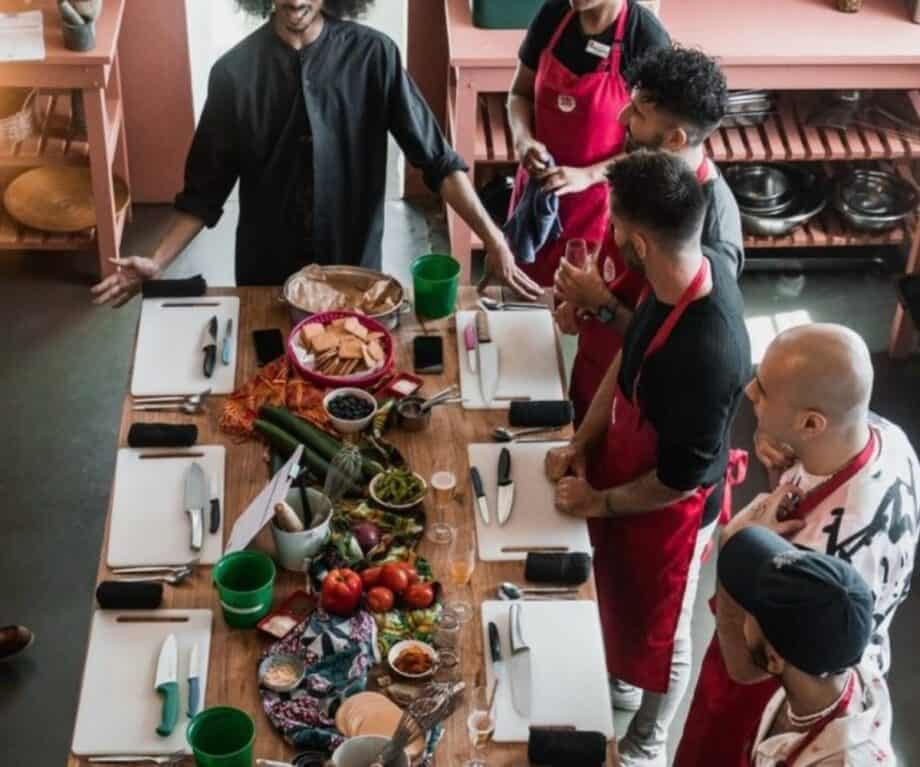
Food Jams is more than just a meal out; it’s a fun, interactive environment where cooking is a shared experience and a celebration of the universal language of food.
Everything you need to plan your trip in 2025
🌟 Luxury hotel deals from Booking
🏡 Vacation rentals from VRBO
✈️ Flights from KIWI
🛫 Private jets from Private Jet Finder
🅿️ Airport parking from ParkVia
🛋️ Airport lounges from Priority Pass
🚖 Airport taxis from Welcome Pickups
🚗 Car rentals from Discover Cars
🚐 Luxury RV rentals from RVshare
🚢 Cruises from Cruise Direct
🛥️ Ferries from Direct Ferries
🎫 Attractions tickets from Tiqets
🏞️ Tours from Viator or GetYourGuide
🛡️ Travel insurance from Safety Wing
🏥 Medical insurance from World Nomads
🧳 Luggage from Case Luggage
🛅 Luggage storage from Stasher
📚 Travel guides from Lonely Planet
📕 eBooks from Kindle Unlimited
🎧 Audiobooks from Audible
🎬 Movies from Prime Video UK
🎵 Music from Amazon Music UK
💶 Travel currency from Wise
📱 SIMs from SimOptions
🌐 VPNs from ExpressVPN or NordVPN
🛂 Visas from iVisa
Dining out in style
Salsify
Perched above Camps Bay, inside the historic 18th-century Roundhouse, Salsify gives you a fine dining experience, where heritage architecture meets contemporary culinary skill. Executive Chef and Co-owner Ryan Cole and Head Chef Nina du Toit, have together created a seasonally driven tasting menu that showcases locally sourced and foraged ingredients, transforming them into beautifully plated dishes, that reflect their technique, expertise, flair and innovation.
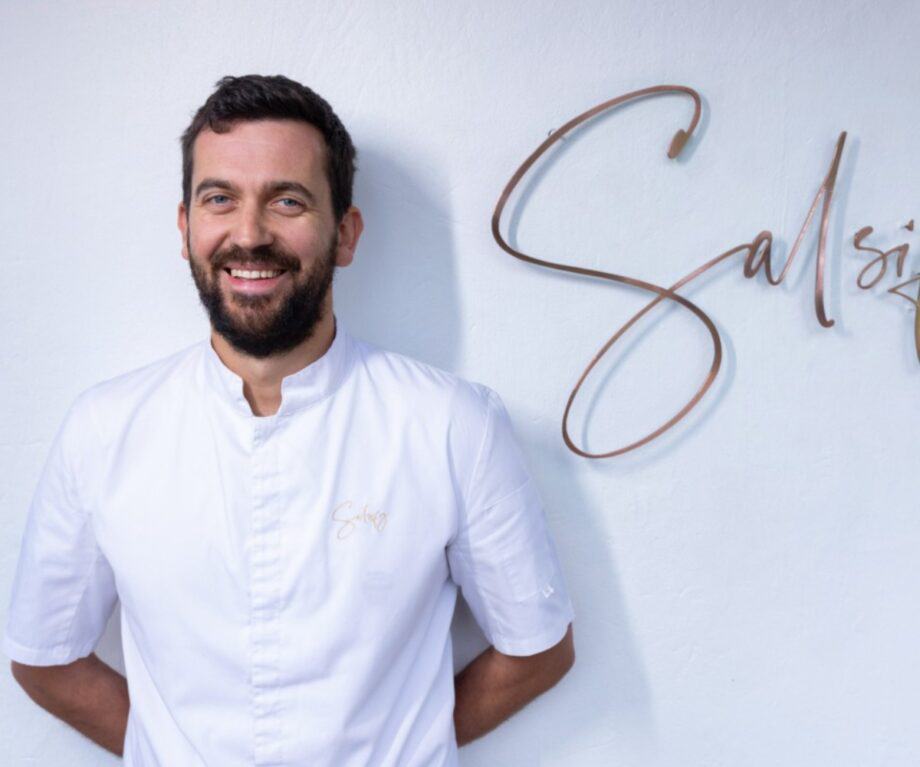
With panoramic views of the Atlantic Ocean and Lion’s Head, the restaurant’s sophisticated interiors, featuring vintage rugs, modern art, and a striking bronze sculpture, create an ambience that is both luxurious and at the same time inviting. Exceptional service and thoughtfully curated wine pairings complete an unforgettable meal here.
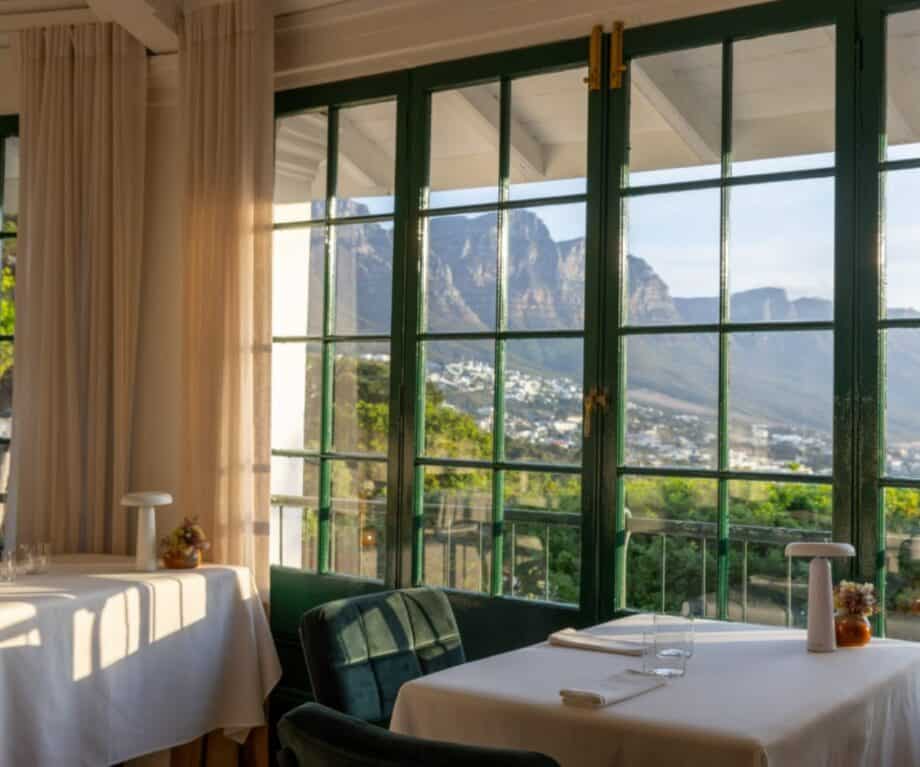
Coy
Tucked between the Time Out Market and the Silo District at Cape Town’s V&A Waterfront, COY is a polished, modern restaurant that highlights African heritage, while treating it with a fresh and contemporary approach. Led by chef Ryan Cole, the menu leans into seafood, using local ingredients and traditional techniques in creative and thoughtful ways.
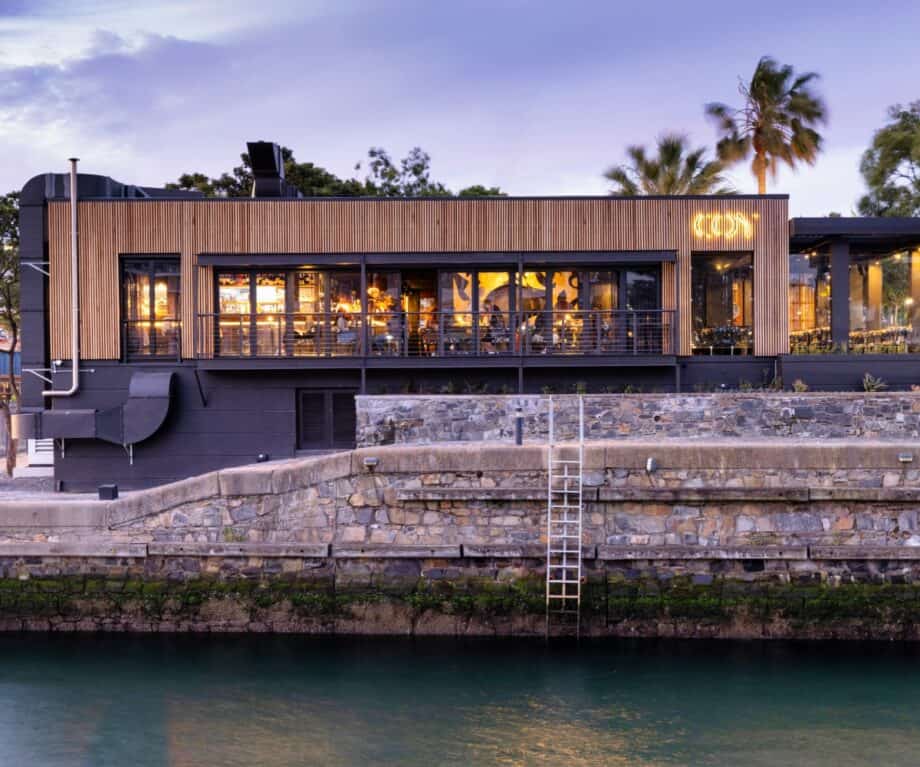
Diners can choose between a seven-course tasting menu or a shorter lunch option called “The Two’s,” both are paired with South African wines and inventive cocktails. The interiors feature a dark, minimalist style which perfectly frames some sweeping views of Table Mountain and the harbour. With a focus on sustainability, local sourcing, and quality, COY is destined to be one of your memorable Cape Town dining experiences, and one that captures the essence of the city’s vibrant and ever-evolving food culture.

Terrarium
Located inside the Queen Victoria Hotel at Cape Town’s V&A Waterfront, Terrarium is a fine-dining experience that brings together sustainability and creativity. Led by renowned South African chef Chris Erasmus and head chef Anlou Erasmus (unrelated to one another!), the restaurant serves two eight-course tasting menus: Fauna, which focuses on local seafood and meats, and Flora, a fully plant-based menu. Both menus showcase seasonal, foraged, and locally sourced ingredients.
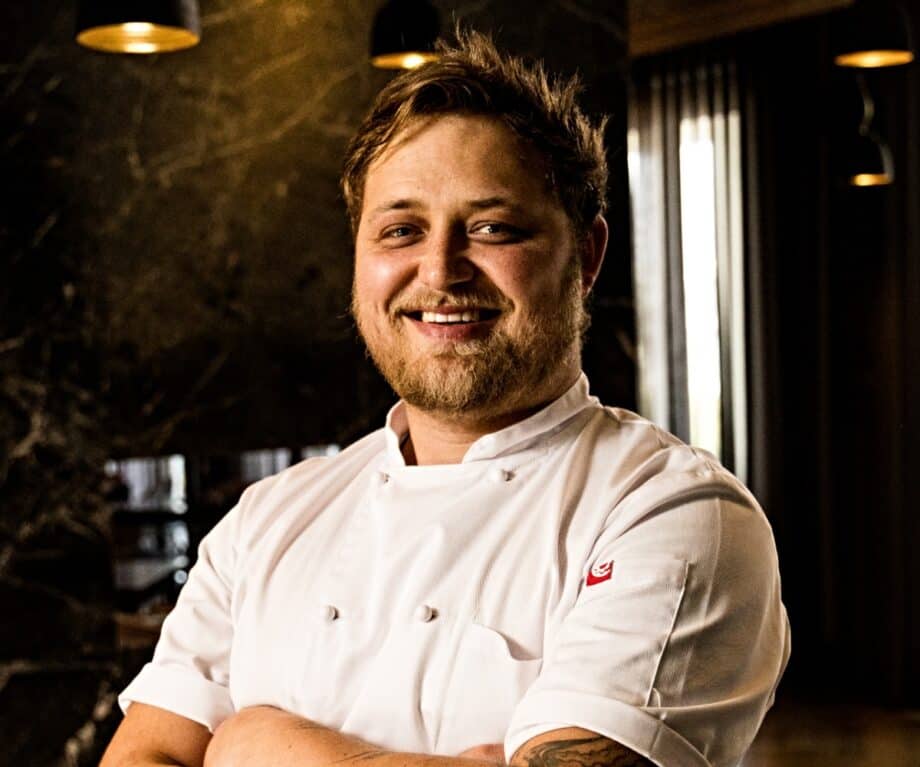
Wine pairings, curated by sommelier Marlvin Gwese, feature small-batch selections from South African producers that complement each course. The space also features contemporary local art and occasional live music.

De Tafel
Set within the peaceful Palm House Boutique Hotel in Wynberg, De Tafel offers a quiet fine-dining experience, one that draws deeply from the Cape’s natural surroundings. Led by acclaimed Executive Chef Gregory Henderson, also known as The Forage Chef, the four- and six-course tasting menus (which include plant-based options) highlight the area’s indigenous ingredients such as wild rosemary (kapokbos), buchu, and foraged mushrooms.
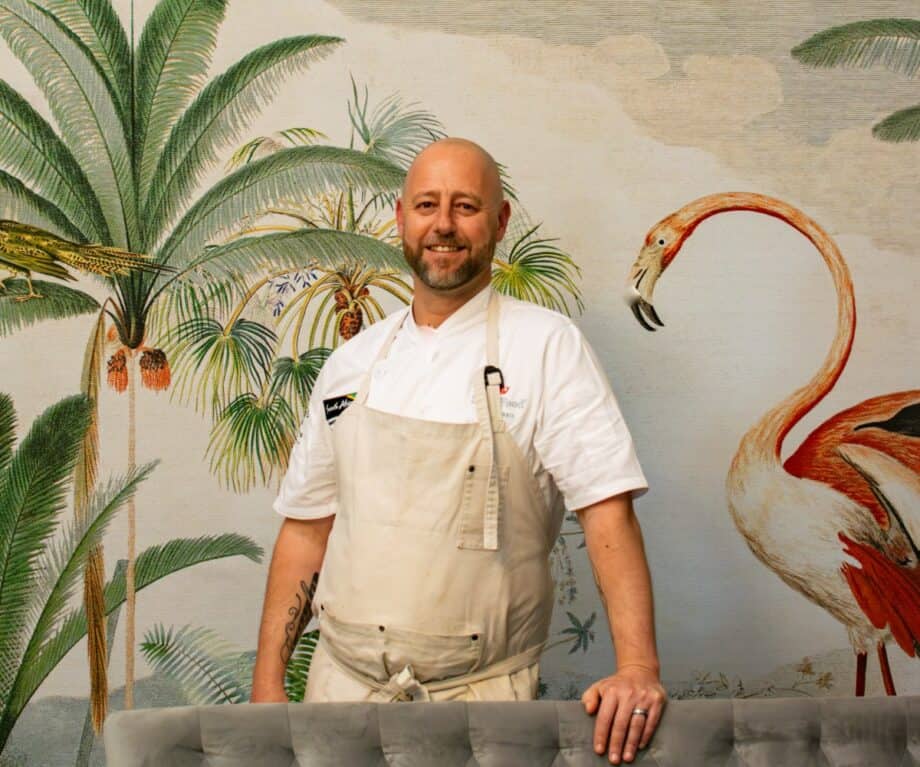
Each course is paired with wines from small Cape estates, carefully selected by sommelier Richard Goza to reflect a strong sense of place. With its commitment to sustainability and storytelling through its food, De Tafel is a dining experience that’s refined, yet at the same time, deeply rooted in the local landscape.
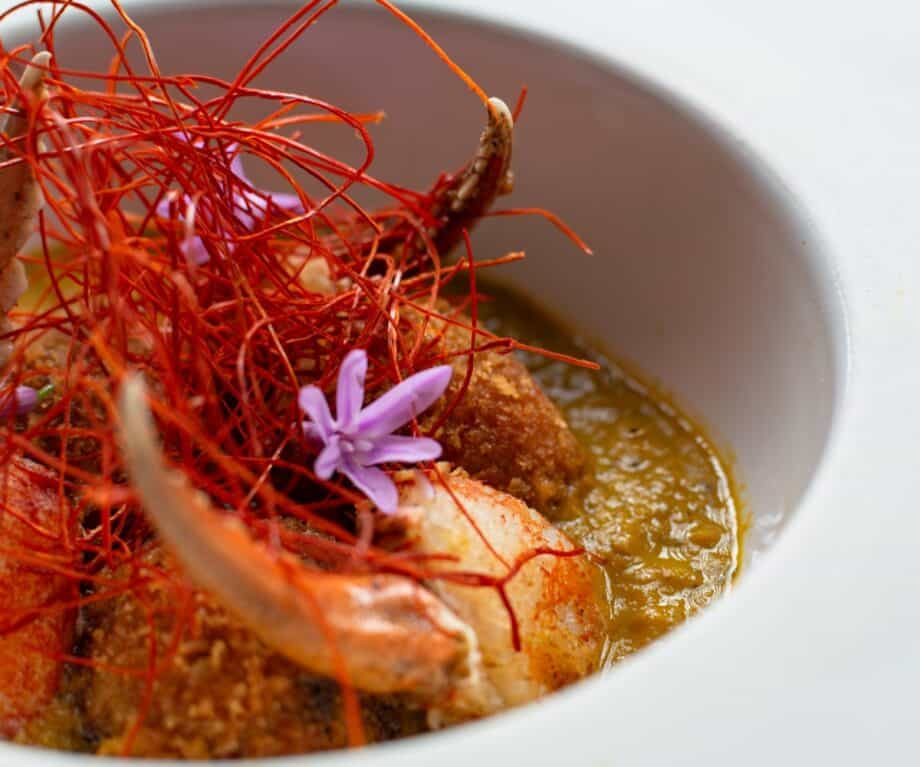
Ouzeri
Found on Wale Street in Cape Town’s city centre, dining at Ouzeri is a relaxed, hip experience, with a menu of reimagined traditional Greek and Cypriot cuisine. Chef-owner Nic Charalambous has drawn inspiration from his Cypriot heritage and his travels through Greece to create a menu that gives a fresh, modern spin on traditional dishes. Signature dishes like the savoury loukoumades with caramelised onions and smoked cheese, or the kalamaki featuring smoked pork belly with fermented chilli honey, showcase this innovative approach.
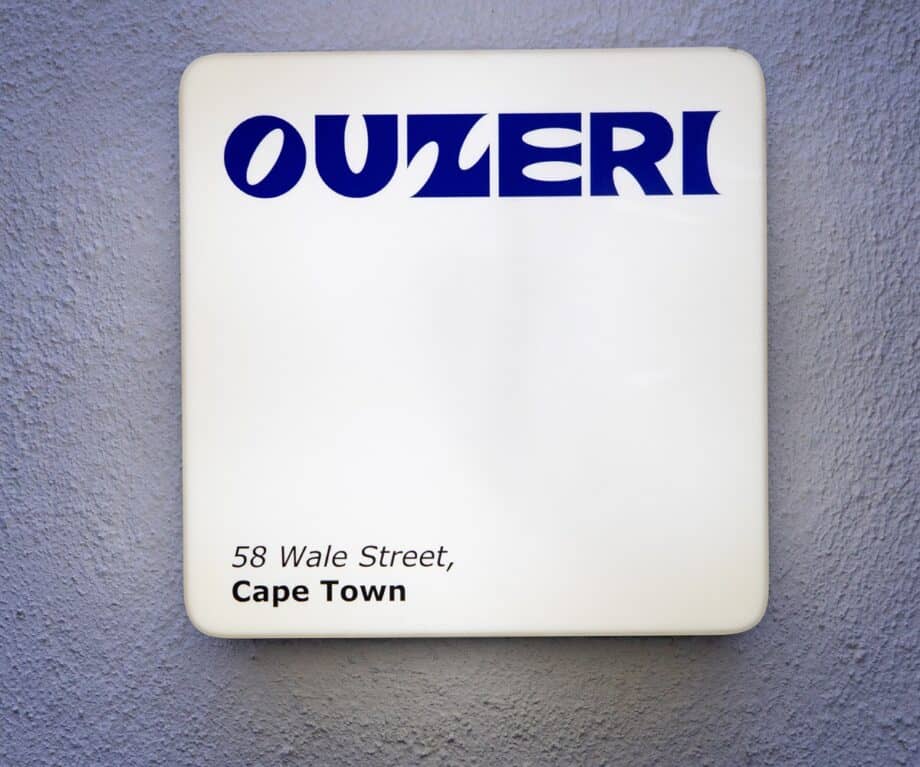
Ouzeri’s commitment to sustainability is evident in its use of locally sourced, seasonal ingredients and the carefully curated selection of natural, low-intervention South African wines. With its warm ambience and attentive service, Ouzeri sends diners off on a culinary journey through the Mediterranean, all without leaving the heart of Cape Town.
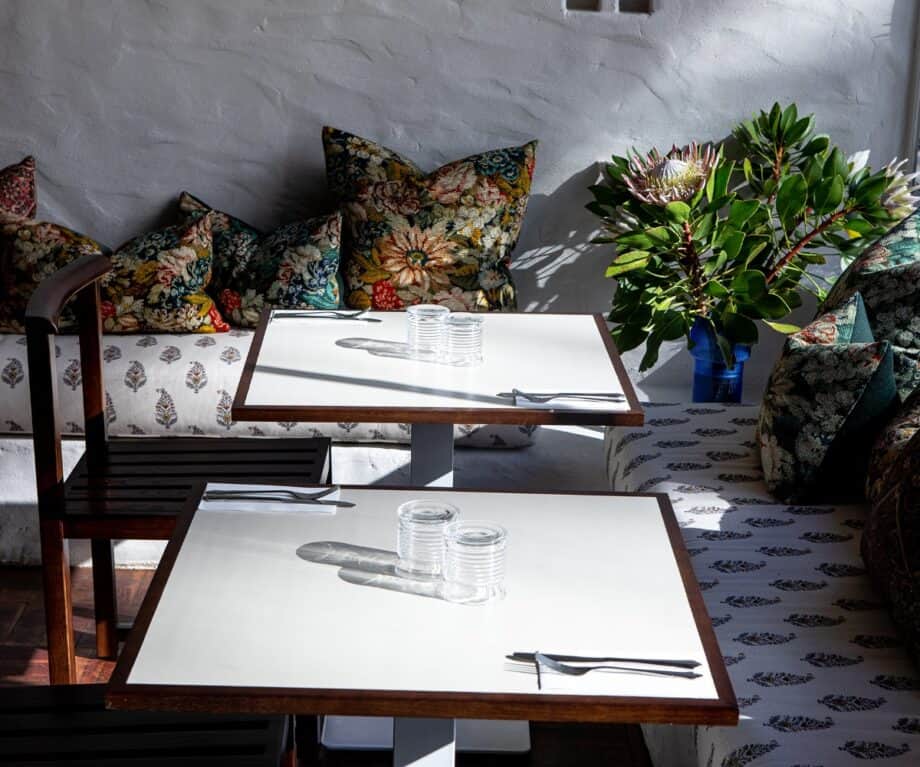
A seaside feast
With the Atlantic Seaboard on one side and the Indian Ocean on the other, Cape Town is a seafood lover’s dream. Freshly caught kingklip, crayfish, and West Coast mussels take centre stage at ocean front restaurants, where panoramic views add to the experience. Tuck into crispy deep-fried fish and chips in a harbour setting or savour seafood platters at a more upscale establishment; however you choose to enjoy Cape Town’s smorgasbord of seafood, each dish showcases the best the ocean has to offer.
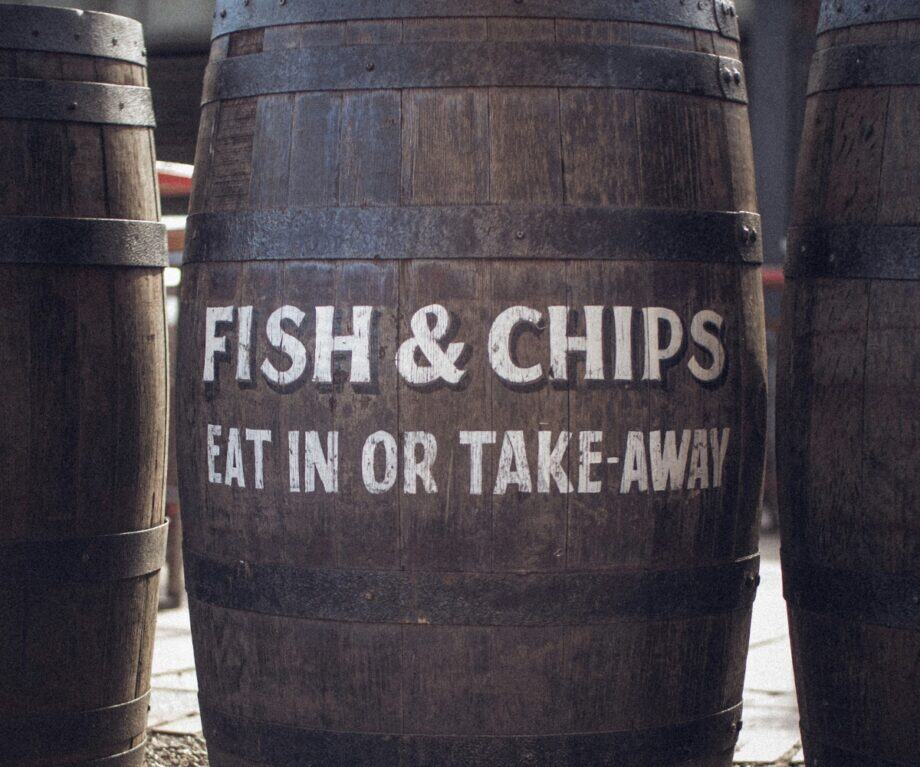
Snoekies is a Cape Town institution. After WWII, founder Hans Mickeleit purchased an old bus, which he converted into a takeaway café, and positioned at the end of Harbour Road in Hout Bay. He and his wife named the take-away café Snoekies, and served fish & chips to the local fishermen. Hans’s wife ran the café, whilst he experimented with smoking fish, before long setting up a factory in Hout Bay Harbour in 1956. A few years later, the business, together with Hans’s secret for smoking fish, was sold. to South African Sea Products. But more than 60 years since its humble beginnings, you’ll still find Snoekies situated at the far end of Hout Bay Harbour, providing locals and tourists alike with crispy-golden battered hake and freshly-cut chips. There are several Snoekies outlets around Cape Town for affordable and tasty fish and chips.
The iconic Gatsby
The Gatsby is arguably Cape Town’s most legendary street food creation. This oversized, flavour-packed sandwich overflows with layers of masala steak, fried calamari, polony or chicken, all topped with ‘slap chips’ (French fries) and a generous dollop of sauce.
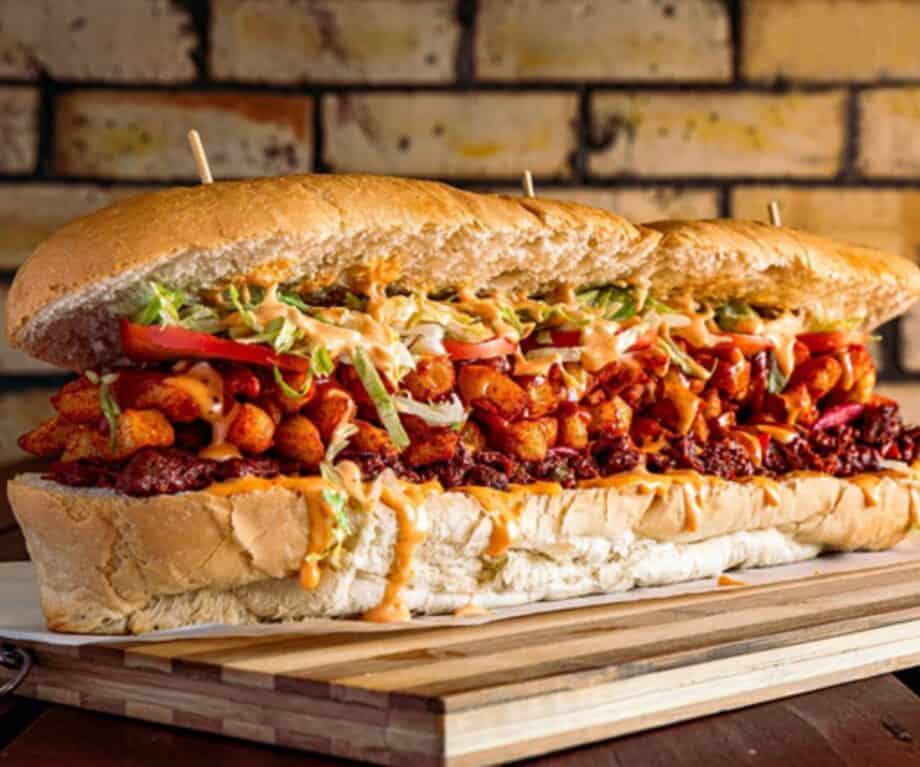
Created in the 1970s as an affordable, satisfying meal, the Gatsby has since become a cultural icon, with countless eateries putting their own spin on this beloved classic. Whether enjoyed at a local takeaway or from a buzzing market stall, the Gatsby is a deliciously messy experience you won’t soon forget.
Koeksisters – the sweet taste of tradition
For those with a sweet tooth, koeksisters are a taste of South Africa’s diverse cultural influence. There are two distinct types of koeksister – The Cape Malay koeksister, which is a fragrant, lightly spiced doughnut rolled in syrup and coconut, and the Afrikaner koeksister, which is a plaited, deep-fried pastry soaked in a rich, sticky syrup. Both variations deliver that irresistible combination of crispy, syrupy goodness that pairs perfectly with a cup of tea or coffee.

Whether found at a neighbourhood bakery or homemade ones purchased from a local market, koeksisters are a cherished South African treat that will keep you coming back for more.
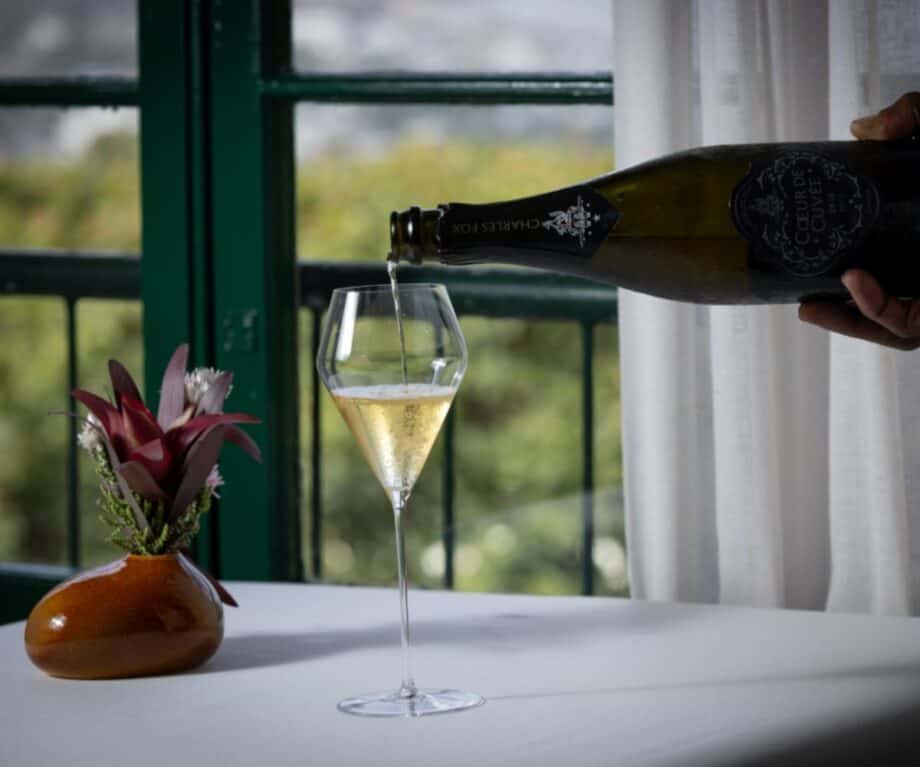
I’ve spent the last 15 years exploring the food scene in Cape Town, from fish and chips by the beach, to multicourse meals at some of the city’s best restaurants, and I’ve yet to be disappointed. Every time I visit Cape Town, the food is a definite highlight and something that I always look forward to. There are some real treasures to be found here.
Did you enjoy this article?
Receive similar content direct to your inbox.

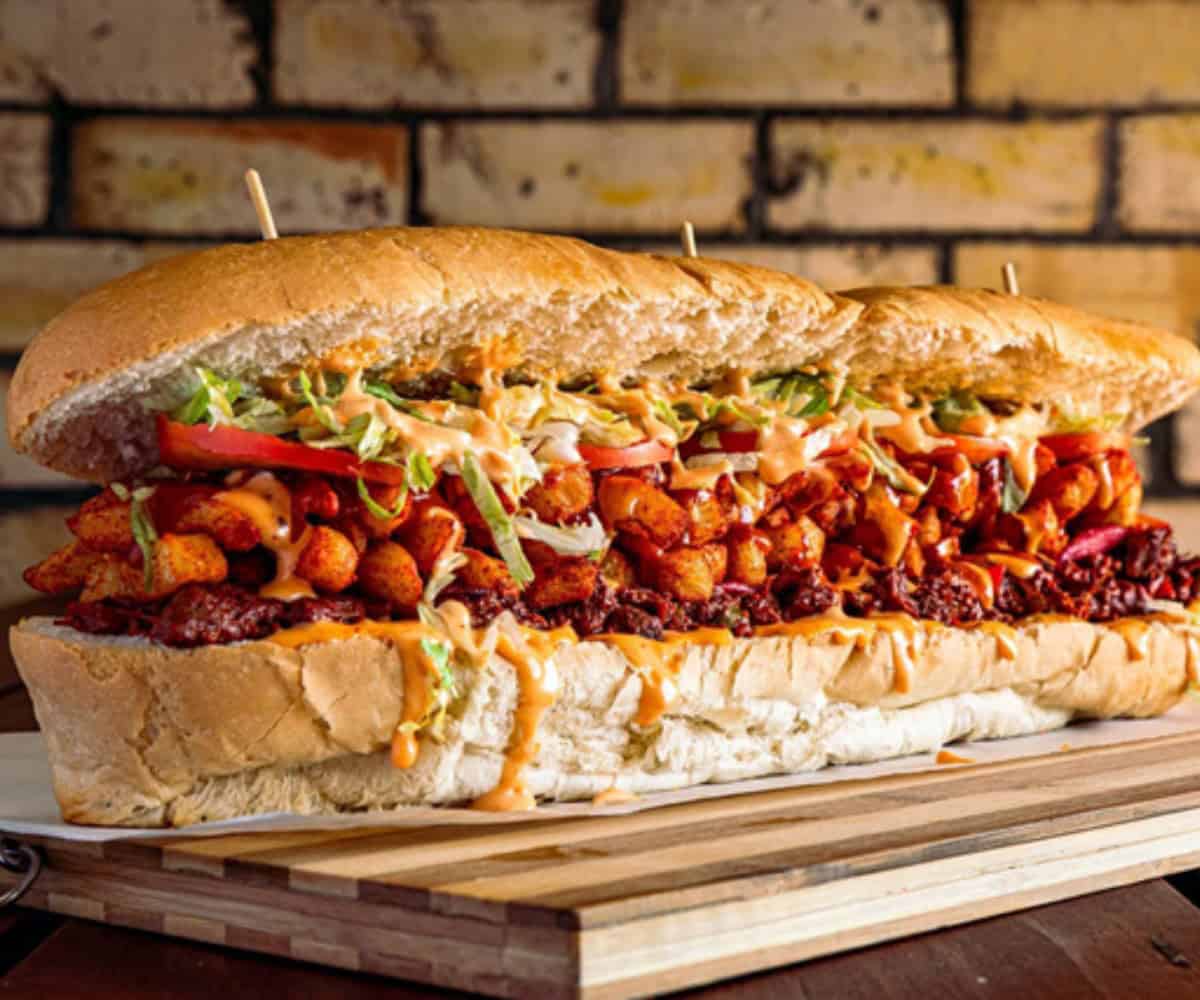

Koeksisters are a new one on me – a sort of spicy take on Spanish churros? Whatever, more than happy to give them a try.
Through the history of mankind food and music have always hung out together. A Food Jam is my idea of heaven. What’s more Cape Town is one of my favourite cities.
I was going to comment by saying that giving Cape Town the title of South Africa’s culinary capital was going to be controversial and provocative especially as I’ve had some great meals with matching wines on South African vineyards, and not only around Cape Town. Then I saw that you’d given honourable mentions to some of the wine regions. Though in fairness I’m yet to have a poor meal in Cape Town and for us Europeans it’s always such good value.
Like the tastes and ideas of a Great Gatsby though I’d feel stuffed if I had that much. Does anywhere do a Little Gatsby?
Coy is being realistic in offering a shorter menu than the massive 7 course taster menu that chefs love. Chefs love the opportunity to show off and make their name, the fact is that 7 courses can be overwhelming for people with average appetites.
A lovely mouthwatering post which I’ve already read twice as I’m hoping to be in Cape Town sometime before Christmas.
How does Jo’burg do in comparison on the culinary scale? I’m interested because on our tentative travel plans we should also be there for a few days.
The private jet business is booming. I’ve got an acquaintance, sadly not enough of a friend, to take me for a flight. He takes potential private jet purchasers for flights and his diary is packed. The majority of his flights convert to sales. His appointments are usually much more than joy rides.
It has to be said that being so close to the Winelands does help Cape Town’s culinary standing.
In terms of balance and fairness I’ve got to say that I’ve had some awesome meals and wine up around the Orange River as well.
I never get the food purists who don’t like food fusion. Cape Town does a great mix between local, Asian and European. Why shouldn’t they fuse the best of the world’s cuisine?
You’ve sold Jo’burg to me. I haven’t been on a trip outside of the US since before the pandemic. Exploring Jo’burg’s cuisine followed by a safari would make for a great combo.
By coincidence I’m on a cruise at the moment and yesterday I got talking to a lady who was working in one of the ship’s shops. Very soon she proudly announced that she was from Johannesburg. I mentioned to her that I’d just read a great piece about Johannesburg food and it triggered a lot of foodie memories of home for her that occupied the next 5 minutes!